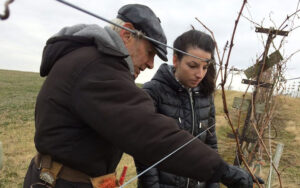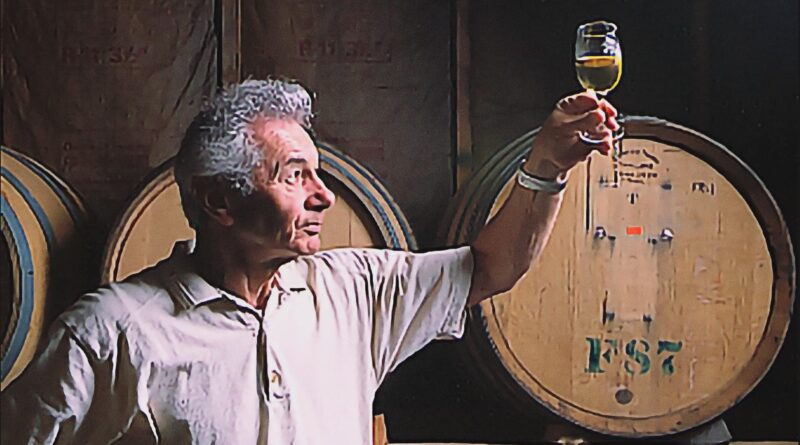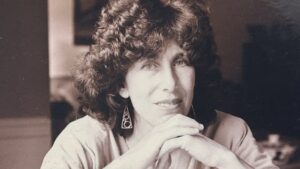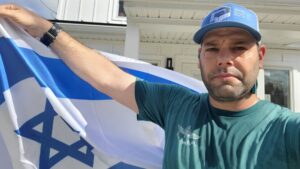William Loew, co-founder of Loew Vineyards in Frederick County’s Mount Airy, one of the oldest wineries in the state, died last Friday, Apr. 15.
A Mount Airy area resident and congregant of Frederick’s Beth Sholom Synagogue, he was 96.
“My grandfather was more than a role model and a mentor to me. He was a focal point of my life,” Rachel Lipman, a manager at Loew Vineyards, wrote on social media. “My grandfather taught me how to think methodically. Each project had a clear and defined process and we never started anything until we anticipated the challenges. We designed and constructed tools to solve unique problems. Most of all, he taught me to appreciate and produce high quality mead and wine.
“We never left a job unfinished (even if we were tired and hungry),” she said. “It has been more than an honor to work alongside my grandfather and to produce meads and wines that are a tribute to our family history. I will continue to strive to make my grandfather proud. I love and miss him.”
A Holocaust survivor, Loew — whose first name was originally Wolfgang — was born in 1925 in Poland, in what today is the western Ukrainian city of Lviv. His family worked in the winemaking business for generations, specializing in mead, or honey wine.
The Loew family spoke Hebrew, German and Polish at home. When Loew was 4, his father died of a heart attack.
In January of 1942, Loew and his family were moved to a Jewish ghetto in Lviv, and he was among 40 Jews forced to work in a tar paper roofing factory. His two older brothers perished during the war, and his mother was killed shortly after the liquidation of the ghetto. All of the family’s wineries were destroyed.
Loew eventually fled to Slovakia in May of 1943 and wound up in Hungary the following January. He became a courier for the Jewish underground. Loew was captured by the Nazis while on a mission in January of 1944 and taken to a prison in the Hungarian city of Debrecen. He was later transferred to another prison in Budapest and transported to Auschwitz in October of 1944. He was then taken to the Flossenbürg concentration camp the following January.
After enduring a death march destined for Dachau in April of 1945, Loew was liberated by the U.S. Army and worked for a while at the U.S. Embassy in Germany. He immigrated to the United States in 1949 and became an electrical engineer. For many years, he worked for the U.S. Food and Drug Administration as a regulatory expert and lived in Rockville.
“I was young but still had to overcome the toll that those years had taken on my health,” Loew once said. “I had no money, I had no education and no basis for beginning to live a normal life. I realized I had to concentrate on the elements that would restore my status of being a mentsch. I had to repair the voids in me by looking into the future. I could not dwell on the miseries of my past. Thank God I was given the chance to succeed.”
Over the years, Loew remained passionate about the winemaking industry. After retiring from the FDA in 1982, he purchased a 37-acre plot in Frederick County with the aim of planting grapes and continuing his family’s wine and mead-making legacy. He and his wife, Lois, whom he married in 1964, were considered pioneers in Maryland’s winemaking industry. They were among the founders of the Maryland Grape Growers Association and the Maryland Wineries Association.
“He found joy in working hard and doing things well and taught his family to do the same,” his family wrote on the website of Sol Levinson & Bros. funeral home. “He approached every subject by studying the specific details, whether it was designing and building a tool or playing a game. Intensely competitive, he loved the sport of tennis, and he played regularly. He played chess for fun and bridge weekly for years. He baked a beautiful bread with a perfect crust, made the best pot of soup.

“Besides growing grapes, he also planted a vegetable garden every spring. He loved to see plants grow, it was always a sign of hope. His kind brown eyes seemed to twinkle when he smiled, and his charisma charmed every person he met.”
Loew is survived by his wife; his children, Jennifer (Daniel) Mendelson, Amy (Stephen) Lipman, and Karen (Steven) Boden; and grandchildren, Rachel Lipman, Sophie Lipman, Alex Lipman, Claire Mendelson, Eliana Mendelson, Dora Mendelson, Carly Boden and Michael Boden.
Funeral services were held at Garden of Remembrance Memorial Park, 14321 Comus Rd., Clarksburg, Maryland, on Tuesday, Apr. 19.
Contributions in Loew’s memory may be sent to Beth Sholom Congregation, 1011 North Market Street, Frederick, Maryland 21701, or to the U.S. Holocaust Memorial Museum, 100 Raoul Wallenberg Place, SW, Washington, D.C. 20024.





